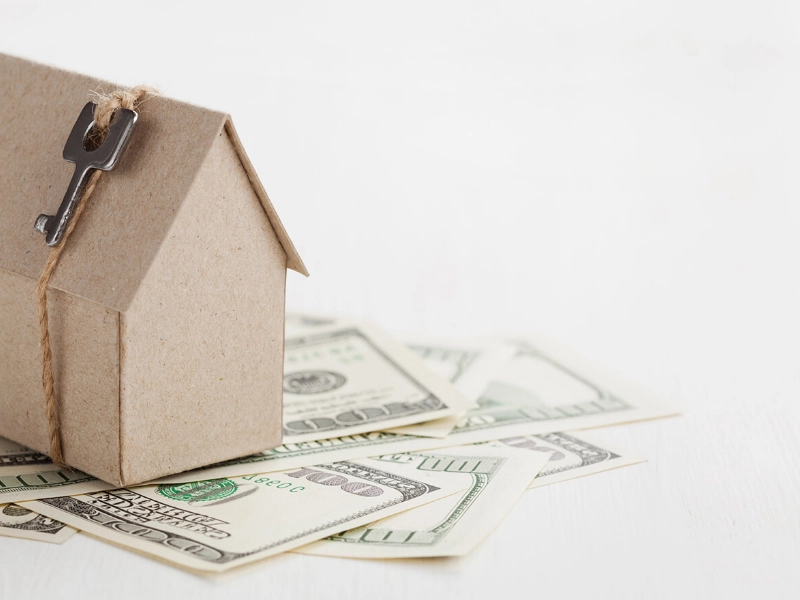Knowing Mortgage Rate Points and How to Use Them to Save Money
By paying interest in advance on a home loan, borrowers can lower their interest rate throughout the course of the loan by using mortgage points, also known as discount points. A borrower may be able to save money by purchasing mortgage points, but before making this financial decision, it's crucial to do the math. However, mortgage points are not inexpensive. The cost of one point is one percent of the loan amount, and it may take several months before the monthly interest savings balance the initial outlay.
Points for Payment

Taxes
 Discount points, sometimes referred to as mortgage points, are paid for up front and lower your interest rate over the course of the loan. Like mortgage interest paid during the home-buying process, points are usually deductible from taxes.
The lender, the kind of loan, and the state of the mortgage market as a whole will all affect how many points you save on your mortgage. Sometimes the reduction is more than you would have liked to see, and other times it may not be as noticeable.
Take into account the length of time you intend to hold your house and if you would be willing to refinance in the future as you assess whether or not mortgage points are worth the cost. Your new interest rate from the mortgage refinancing will be determined by the market rates in effect at the time of the refinance. It would be absurd to pay mortgage points up front if you were prepared to refinance before you hit your breakeven threshold. If so, you might be better off using your mortgage points to cover other expenses related to purchasing a property.
Discount points, sometimes referred to as mortgage points, are paid for up front and lower your interest rate over the course of the loan. Like mortgage interest paid during the home-buying process, points are usually deductible from taxes.
The lender, the kind of loan, and the state of the mortgage market as a whole will all affect how many points you save on your mortgage. Sometimes the reduction is more than you would have liked to see, and other times it may not be as noticeable.
Take into account the length of time you intend to hold your house and if you would be willing to refinance in the future as you assess whether or not mortgage points are worth the cost. Your new interest rate from the mortgage refinancing will be determined by the market rates in effect at the time of the refinance. It would be absurd to pay mortgage points up front if you were prepared to refinance before you hit your breakeven threshold. If so, you might be better off using your mortgage points to cover other expenses related to purchasing a property.
Break-Even Point
 The amount of income a property or business must bring in to cover fixed costs and turn a profit is determined mathematically as the break-even point. Although it's a helpful statistic for assessing profitability and the feasibility of investments, it ignores things like changing prices and market demand.
You can decide whether or not to take out a new mortgage loan by knowing your break-even threshold for a refinance. But keep in mind that each circumstance is unique and should be assessed in the context of your personal financial priorities and aspirations. Refinancing to raise funds for home renovations, debt consolidation, or emergency savings may be worthwhile, but you should wait until the break-even point is reached.
The amount of income a property or business must bring in to cover fixed costs and turn a profit is determined mathematically as the break-even point. Although it's a helpful statistic for assessing profitability and the feasibility of investments, it ignores things like changing prices and market demand.
You can decide whether or not to take out a new mortgage loan by knowing your break-even threshold for a refinance. But keep in mind that each circumstance is unique and should be assessed in the context of your personal financial priorities and aspirations. Refinancing to raise funds for home renovations, debt consolidation, or emergency savings may be worthwhile, but you should wait until the break-even point is reached.
Long-Term Advantages
 If you want to remain in your house for a long time, mortgage points can help you save money. The savings from the lowered interest rate may exceed the mortgage points' initial cost. Usually, the break-even threshold occurs after five years. It wouldn't make sense to purchase points if you sold your house or refinanced your mortgage before this time.
Your interest rate is lowered by one-eighth to one-quarter of a percent with mortgage discount points. Over the course of your loan, this might result in savings of thousands of dollars. Mortgage points aren't free, either; typically, they cost 1% of the total loan amount.
You can compute your breakeven point by dividing the upfront price of the points by the monthly savings from a reduced interest rate. This will help you decide if purchasing mortgage points is cost-effective. To determine whether mortgage points are worthwhile for you, discuss your alternatives with your lender and do the math on your own calculator.
If you want to remain in your house for a long time, mortgage points can help you save money. The savings from the lowered interest rate may exceed the mortgage points' initial cost. Usually, the break-even threshold occurs after five years. It wouldn't make sense to purchase points if you sold your house or refinanced your mortgage before this time.
Your interest rate is lowered by one-eighth to one-quarter of a percent with mortgage discount points. Over the course of your loan, this might result in savings of thousands of dollars. Mortgage points aren't free, either; typically, they cost 1% of the total loan amount.
You can compute your breakeven point by dividing the upfront price of the points by the monthly savings from a reduced interest rate. This will help you decide if purchasing mortgage points is cost-effective. To determine whether mortgage points are worthwhile for you, discuss your alternatives with your lender and do the math on your own calculator.







